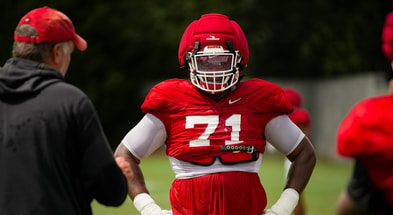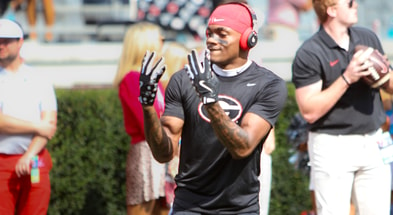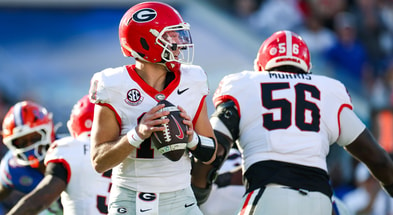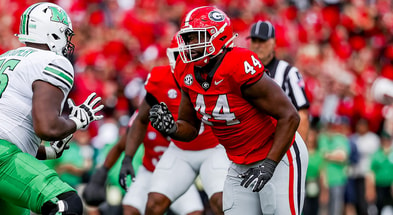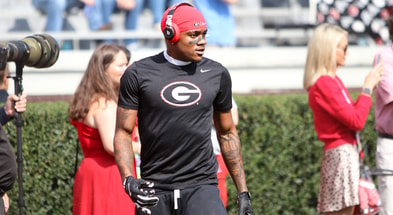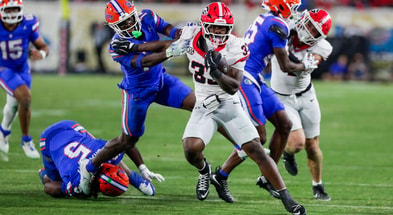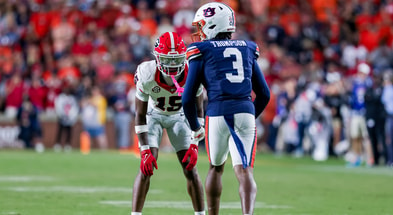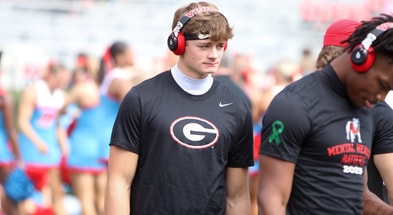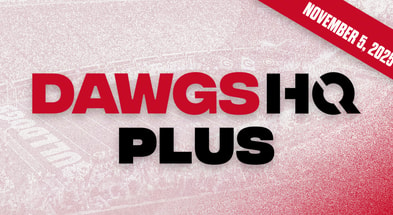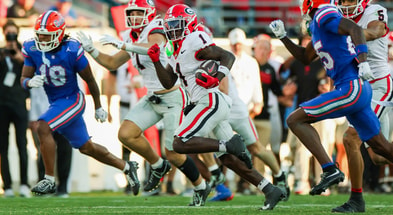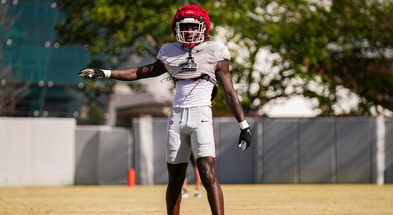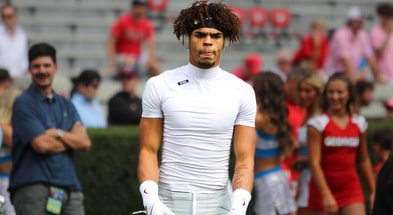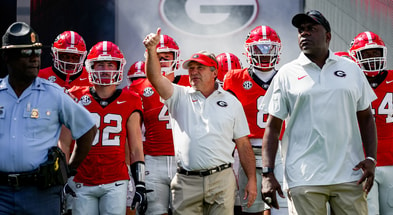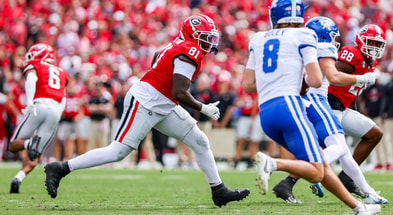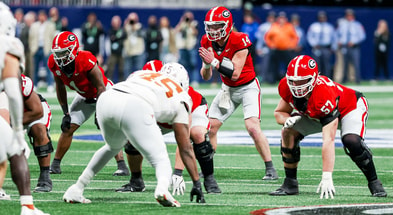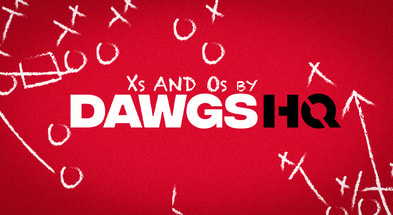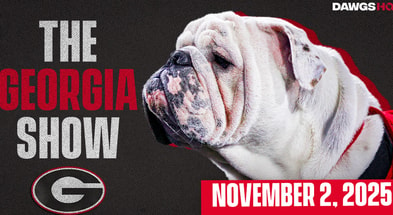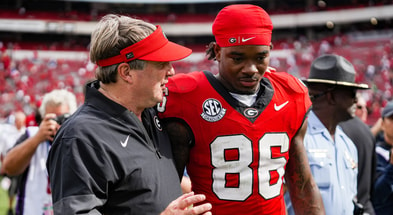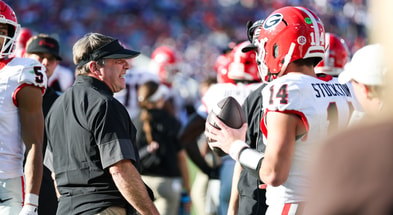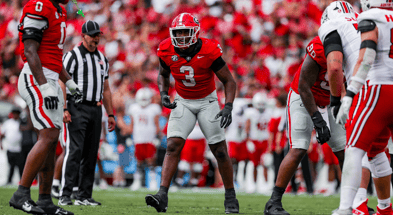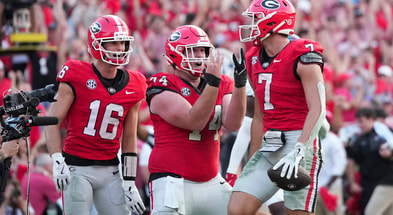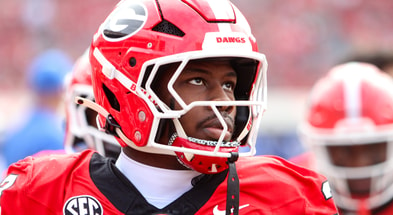Kirby Smart shares on areas of growth, when things changed at Georgia

It may feel like forever ago, but there was once a time Kirby Smart was a young head coach still getting used to the position he was put in at Georgia. A longtime defensive coordinator at Alabama, Smart knew what championship programs looked like. However, he had to build one of his own in Athens instead of all the pieces being in place already as was the case at the time he left the nest of Nick Saban.
For Smart, that took time. He had areas he wasn’t quite comfortable in. While defense came naturally, and that showed on the field with the Bulldogs almost always being at or near the top of statistical categories on that side of the ball, Smart was in charge of an entire team. And in assessing where he’s grown the most, now with two championship rings to show for it, it’s that ability to delegate and trust those around him that he says has been important in building a championship culture at Georgia.
“Delegate, freedom to trust more people to do their job, I wish so bad I could go back and be better at that,” Smart said during his appearance on Dr. Drew Brannon’s podcast, The Growth Project. “I think it was kind of like this mold of a person that wasn’t shaped. You’re shaping this sculpture, and as a young head coach, I was not sculpted. I was like, ‘OK, I’ve got to learn trial by fire here’ of, ‘I can’t do that. I don’t have enough energy to do that. OK, I don’t have enough expertise to do that. OK, I need to let this guy do this because this is his strength. OK, maybe this guy stays two more years in the program if I allow him to do this ‘cause he feels like I’m developing him.’ That’s probably the biggest thing is allowing myself to let the organization run and let people do their job, but I don’t know I would be here today if I had done it that way in the beginning.”
It’s absolutely a tough lesson to learn. In fact, Smart says that there’s no way to learn it other than by doing it.
“No matter how much preparation you have, how many National Championships you have, how many games you’ve called, there’s nothing that can prepare you for that seat other than experience,” Smart said. “… There’s no textbook — nobody handed out a book that said, ‘Hey, here’s how Coach Smart wants to run it’ ‘cause I couldn’t write that book then. I didn’t really know, so you had to go trial by fire. We had to say, ‘That’s not how I want it done.’ ‘Well, OK, Coach, tell me how you want it done.’ ‘Alright, here’s how I want it done.’ OK, then the next guy who comes in, he knows how you want it done now. And I think that’s important.”
“We had to get here through this journey,” he continued. “I couldn’t have just jumped to this spot being a first-year head coach, so I learned a lot about relationships with players, relationships with staff, family, family time, and to be honest with you, the game’s changed. Like, the climate we play in and coach in now is so different than it was eight years ago. The demands are different. So, like the demands on time are just awful, so I’m constantly looking at the calendar saying, ‘How can I get it better for my coaches so they’ll enjoy being here?’”
RELATED: Kirby Smart reflects on what he’s enjoyed most about back-to-back championships
Case and point on all that Smart’s talking about? The adjustments he made after Georgia’s 2020 season. In Smart’s first four years as head coach, the Bulldogs had won the SEC East and played for the conference title every year with the exception of his first. They won it in 2017, year two of the Smart era, and played for the National Championship. Things were great. However, come 2020, Georgia wasn’t in the SEC Championship Game. It was time to re-assess.
“I didn’t spend a lot of time on it at Alabama, so I was not as adverse in it,” Smart said about what he called investing in human capital. “There would be times that Trevor (Moawad) was trying to impart knowledge or ideas on me that I was like, ‘Hey, man, that’s all good. I’ve got to get these scripts done. I’ve got to get these plays done. I’m a lot more worried about getting this done, getting my work done.’ I thought that I controlled things on what I called and how we played instead of investing that human capital in the players of maybe talking to that player and maybe he plays better, and maybe that makes your play work better.”
Top 10
- 1Breaking
Luke Fickell
Wisconsin makes decision
- 2New
Kenny Dillingham
Shares decision on ASU future
- 3
Brian Kelly
Breaks silence on LSU firing
- 4Hot
Jaland Lowe injury
Mark Pope reveals PG's status
- 5Trending
Brent Key job status
GT coach reveals loyalty
Get the Daily On3 Newsletter in your inbox every morning
By clicking "Subscribe to Newsletter", I agree to On3's Privacy Notice, Terms, and use of my personal information described therein.
“I probably wasn’t fully invested until after the Cincinnati game. We decided we had had three or four stagnant years – and I say stagnant, they were successful years. We’d won the East and won bowl games, but they weren’t where we wanted to go, and we had to look at ourselves in the mirror and say, ‘What can we do different to get some different results?’ And that was a big moment for me in my career because you could argue — it wasn’t that I was anti doing that before, but it had never been presented that way. It had never been presented to me.”
So what did Smart do? He turned to outside help and was willing to get feedback from others. That delegation that he talked about played a part as he allowed others to be hands on with his program more so than ever before.
“I think we’d all had just gone through a really strange time ‘cause that was the COVID year, so it was like we came out of the year 8-2. It was not a great year, but it wasn’t a horrible year. We played an All-SEC schedule and didn’t get to play a game — had one game canceled on us out at Vandy, so it was kind of like, ‘Man, we just won the Peach Bowl, and it’s like nobody’s even — nobody’s even happy. Where are we headed here? Where is our relevance?’ And we did a big introspective look, man,” Smart said. “To have your staff go through and critique you anonymously and look at you and say what can I do to help them? I think that was really valuable information for me in my career, and you’re right — it was not easy. It was very uncomfortable to do that, and really do that with the whole team to try to see where we could get better.”
The investment certainly has paid off. Since then, Georgia’s gone 29-1 with a pair of National Championships. The Bulldogs have had 25 players picked in the NFL Draft, most during that time, and are recruiting at rates rarely seen before.
Georgia will try to do something that hasn’t been done since the 1930s this fall: win three straight titles. One thing you can bet on is the fact that Kirby Smart isn’t going to try to go changing up the program’s ways this time around. He’s found a model for success in Athens, fine-tuned it and has his red and black machine rolling.
